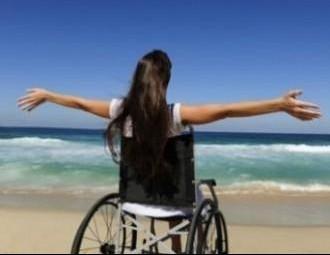NGOs welcome the initiative on cooperation with the Ministry of Labor and social protection

A concept of State program of social integration of persons with disabilities for 2016-2020 is being developed in Belarus.
Representatives of the Ministry of Labor and social protection say that the document should provide the complex character of formation and realization of social integration of persons with disabilities to all the spheres: healthcare, education, employment, social protection, information, culture, sport etc. Such conceptual approach will help to create a complex common network of accessibility of the social infrastructure objects taking into account peculiarities of some categories of citizens – disabled and physically weak people.
Representatives of state authorities emphasize the importance of interdepartmental cooperation of bodies and organizations.
The head of the department of state social support of population of the Ministry of Labor and social protection Anatoly Razhanets sees in it a lot of positive things. For example, reallocation of finances will take place between state and private organizations. The representative of the ministry also says that it is very important that the key role in the development of state programs and the control of quality of their realization, observance of technical legal acts on accessibility of the environment can be delegated to NGOs.
Office for the rights of persons with disabilities welcomes the initiative on interdepartmental cooperation: several months ago the organization launched a long-term initiative on making proposals by public to state programs for persons with disabilities which are being developed. Regional topical meetings with representatives of NGOs and committees on Labor, employment and social protection of Oblast executive committees took place in Minsk and Minsk Oblast, Mogilev, Brest, Vitebsk. Their idea was to make new state programs more effective and to implement new legislative documents to the provisions of the Convention on the rights of persons with disabilities Belarus is going to adopt.
“We, NGOs working with persons with disabilities welcome the initiative on cooperation and are ready to discuss the way public can influence the content of state programs. The next step, as we see it, should be round table with the participation of representatives of state authorities for discussing the conception of State program of social integration of persons with disabilities for 2016-20120,” summed up Siarhei Drazdouski, project coordinator of the Office for the rights of persons with disabilities.
According to the Office for the rights of persons with disabilities
-
03.01
-
07.10
-
22.09
-
17.08
-
12.08
-
30.09



























